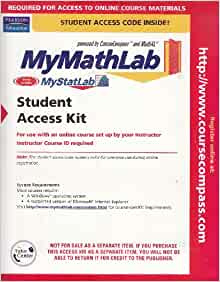As a college student, you’ve probably been assigned a textbook or two that has an “inclusive access” code. You may be wondering what is the inclusive access code, and why do more and more textbooks seem to have this code? As several recent lawsuits demonstrate, inclusive access is really more about generating recurring revenue and profits for textbook publishers than it is about generating improved academic outcomes for you.

What are Textbook Inclusive Access Codes?
To understand the inclusive access codes, firstly, you need to consider 10 questions & answers about access codes for textbooks and understand the college textbook market. Textbook publishers only make money when a new textbook (print or digital) is sold; they don’t make any money on used textbooks or textbook rentals. So naturally, their incentive is to get you to buy new textbooks every time and undercut the used and rental markets, and eliminate your choice to buy or rent cheap used books or make money selling your used textbooks.
These codes were invented by textbook publishers a few years ago as a response to the rapid rise of online used textbooks and textbook rentals eating into publishers profits. Since the codes can only be used once to access supplemental material, after the one time use the used textbook has no access code and therefore no value. Students are forced to buy new textbooks each term to get the codes, which definitely benefits the publisher’s bottom line but not so much your wallet or education.
Things have changed since we wrote about access codes in 2016, when the codes were part of bundled textbook packages which included the book as well as supplemental material accessible through the one time access codes. You had a choice of buying the textbook a la carte, or buying the textbook/access code bundle. Today, with “inclusive” access, you no longer have a choice. You are forced to buy the textbook with the inclusive access code for one time use, then stuck with a used book that you cannot resell. It has gotten so bad, that scammers have popped up selling fake second hand access codes.
Who Benefits?
The inclusive access codes are just the latest tactic that college textbook publishers have long employed to maximize their revenue from struggling college students. In past decades, their preferred tactic was to come out with a new edition every year or two on subjects that really don’t change much year to year (think Algebra, Chemistry, Psychology, etc) so that professors would assign the new books, and undermine the resale value of the previous editions. This worked great for a long time, until the advent of online competition which greatly expanded student choice, and textbook rentals. To respond to this new competitive threat, the marketing geniuses at the big publishers invented textbooks’ access codes to kill the used and rental markets.
The publishers try and sell the inclusive access codes as some educational miracle that will help your grades tremendously and they are only doing it for you, the student (wink wink). Since there have been no studies that compare academic achievement results for students with access codes vs students without codes, we will just have to take the publishers at their word that they have your best interests at heart.
What happens from here?
There has been a lot of pushback from students and the college bookstore industry against the publishers. Since only big chain and campus bookstores can sell the access code books, this eliminates competition and drives up prices. Several lawsuits have been filed from both students and off campus college bookstores to open the market back up, so let’s hope these lawsuits are successful and the publishers finally learn that their student customers don’t like these monopolistic tactics that harm students and benefit the publishing industry. Until then, ask your professors to assign books that don’t have these codes so that you can benefit from a free market economy and get the best textbook at the lowest price.

